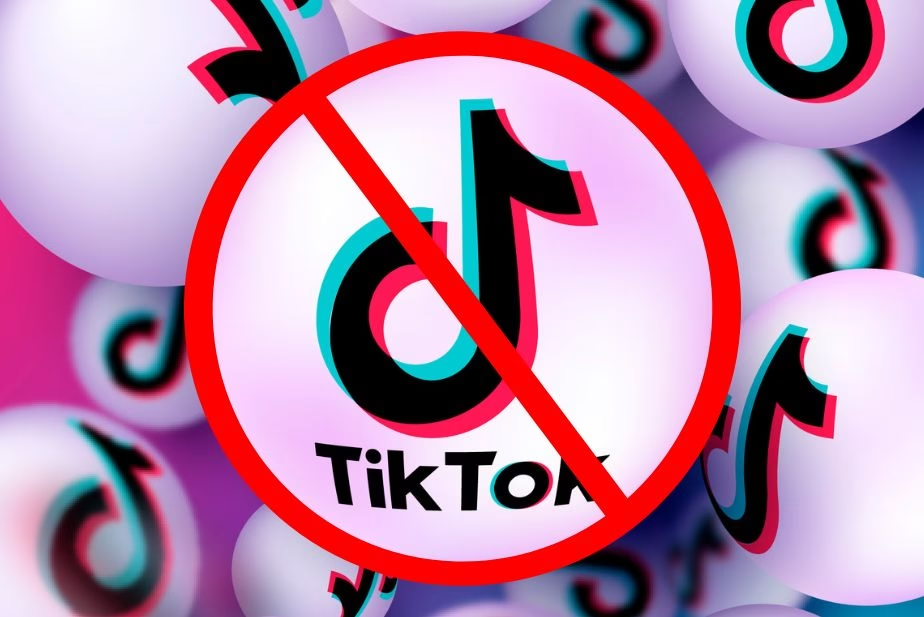Introduction
On December 7, 2024, TikTok Ban in the United States became a reality as the Court of Appeals for the District of Columbia Circuit upheld a law that mandates TikTok’s Chinese parent company, ByteDance, to sell the platform to a Non-Chinese entity by January 19, 2025. If this condition is not met, TikTok will face a nationwide ban. This decision comes amid ongoing concerns over national security and data privacy.
Table of Contents
Background
Why TikTok is Banned
The main concern driving this decision is TikTok’s alleged ties to the Chinese government. U.S. officials argue that TikTok could be compelled to share user data with the Chinese government, posing a significant threat to national security. TikTok, however, has consistently denied these claims, stating that user data is stored outside of China and that it would never share such data with any government.
The U.S. government believes that the vast amounts of personal data collected by TikTok, including location data, browsing history, and biometric data, could be accessed by the Chinese government. This concern is rooted in China’s National Intelligence Law, which requires Chinese companies to cooperate with the government on matters of national security. Despite TikTok’s assurances, these fears have not been allayed.
Previous Attempts
This isn’t the first time TikTok has faced regulatory challenges in the U.S. In 2020, the Trump administration issued an executive order to ban TikTok, citing similar national security concerns. However, the order was blocked by federal courts, and TikTok was allowed to continue operating in the U.S. The Biden administration later reversed the executive order but initiated a comprehensive review of the app’s security risks.
The recent ruling by the Court of Appeals marks the most significant action against TikTok to date. It highlights the U.S. government’s continued apprehension about the platform’s data privacy practices and potential influence by the Chinese government.
Implications on TikTok Ban
For Users
If TikTok is banned, millions of American users could lose access to the platform. This could disrupt social interactions, content creation, and even small businesses that rely on TikTok for marketing and engagement. The app has become a cultural phenomenon, particularly among younger generations, and its absence would leave a significant void in the social media landscape.
The ban could also impact how users consume content. TikTok’s unique algorithm, which curates personalized content feeds based on user interactions, has set it apart from other social media platforms. Users may struggle to find a similar experience on alternative platforms.
For Content Creators
Content creators who have built large followings on TikTok might face a severe setback. Many creators earn income through brand partnerships, sponsorships, and the platform’s creator fund. The ban could force them to migrate to other social media platforms, potentially losing their audience in the process.
For creators, TikTok has been a lucrative platform that offers opportunities for creativity and income generation. The ban would compel them to adapt and find new ways to engage their followers on different platforms like Instagram, YouTube, or emerging competitors.


For ByteDance
For ByteDance, the ruling is a significant blow. The company must now find a buyer for TikTok that is acceptable to U.S. regulators. This process could be complex and time-consuming, potentially affecting TikTok’s global operations.
Finding a suitable buyer who meets the U.S. government’s criteria and is willing to pay a fair price for TikTok’s U.S. operations will be a significant challenge. The uncertainty surrounding the sale could also impact TikTok’s growth and user engagement in the interim.
TikTok’s Response on TikTok Ban
TikTok has expressed disappointment with the ruling and plans to appeal to the Supreme Court on TikTok Banned. The company argues that the ban would violate free speech rights and censor millions of Americans. TikTok also emphasizes that it has taken numerous steps to address security concerns, including establishing data centers in the U.S. and Europe.
TikTok’s leadership has been vocal about the efforts they have made to protect user data. They have implemented measures such as “Project Texas,” which involves transferring American user data to U.S.-based servers managed by American companies. Despite these efforts, the U.S. government remains skeptical.
Global Reactions (TikTok Ban)
The ban has sparked reactions from around the world. Some countries have voiced support for the U.S. decision, citing similar concerns about data privacy and national security. Others, however, view the move as politically motivated and an attempt to stifle competition from Chinese technology companies.
In Europe (TikTok Ban)
European countries are closely watching the situation. The European Union has its own stringent data protection laws, and some member states have considered similar measures against TikTok. The U.K., in particular, has already implemented restrictions on the app’s use on government devices.
In China (TikTok Ban)
China has criticized the U.S. decision, accusing it of unfairly targeting Chinese companies and engaging in protectionism. The Chinese government has stated that it would take necessary measures to protect the interests of Chinese companies abroad.
Conclusion
The ruling to ban TikTok in the United States marks a pivotal moment in the ongoing debate over data privacy and national security. While the outcome remains uncertain, it underscores the increasing scrutiny on tech companies and their handling of user data. For now, millions of TikTok users and creators await the final decision, which could reshape the social media landscape.
What’s Next?
As the deadline approaches, all eyes are on ByteDance to see how it navigates this challenge. Will the company find a buyer in time, or will the popular app indeed face a ban in one of its largest markets? Only time will tell. In the meantime, the situation serves as a reminder of the complex interplay between technology, geopolitics, and user privacy in the digital age.



